With learning styles debunked I get very uncomfortable with the idea of play personalities and play styles…
mostly because of how these sort of things end up being used - as was the case for learning styles.
I absolutely believe that there are many different ways to both learn and play, and that there might be preferences - but I also believe that our preferences change over time.
As a mother of twins I remember, pre-birth, reading as much as I could about babies and twins, because, as forewarned, there is no time for such things once they are born for some considerable time. One of the things, that was in most of the literature about twins, was about labelling, and how children become the label we give them.
Now this kind of labelling is very different from receiving a diagnosis - which, back then got called “labelling” and that children would become what they are labelled - but (eye-roll) if a child is autistic the child is autistic, that doesn’t happen because we acknowledge the diagnostic “label”.
But if we are calling a child the sporty one, or the naughty one, or the clever one, or the shy one… there is a risk that the children self actualise this as part of their identity and feel compelled to be sporty or naughty..
and yes, I have met twins that were labelled the good and the naughty twin, and at age eight I could clearly see the negative impact and shame on the face of the twin labelled naughty, even if it was jokingly shared by the mother, it was obvious this was not the first time these twins had heard this.
So the idea of there being play personalities and styles (regardless of who has created them, and their standing in the play world) - they make me feel uncomfortable.
I do think that it is important that adults think about play, and the many different ways this can manifest, and the many different reasons behind the play (physical, emotional, social, spiritual, cognitive - all connected by the words intrinsic and/or instinctual).
Spiritual I interpret as our well-being/balance in connection with the world around us. For some, spiritual is only connected to a religious experience; but I see it as being reciprocal relationships with the human and more-than-human.
For example
The CompetitorThe perfect opening gambit, the unbelievable score, the fastest time: Competitors access the euphoria and creativity of play by participating in a competitive game with specific rules. Competitors aren’t playing just for the game; they are playing to win. If games and keeping score are your thing, this may be your primary play personality.
Competitors may enter play state through a single-player video game or by playing a team sport like baseball. They may actively participate in the game or just watch, as a fan. Competitors make themselves known in social groups, where the fun comes from being the top person in the group.
Tom Brady is a classic competitor; his reactions and energy under deep stress — when being rushed by the defense or needing to score with seconds left in the game — show that he is intensely competitive with a keen eye for how to win.
https://nifplay.org/what-is-play/play-personalities/
I just don’t agree with this at all… my own observations and dialogues with people of all ages, has shown that competition - the need to win is not play, but a different need.
I have been thinking about competition a lot and how it affects our lives.
It really is just everywhere.
Competitiveness I think is one of those things that we need to regulate just as we do with fear, anger and a whole myriad of feelings and states of being - regardless of whether they are perceived as positive or negative.
But what I see is competition is being described as positive/healthy or negative - yet when I read the descriptions of positive competition it is seems less like competition and more like play - challenges, collaborating, enjoying the buzz of what is being done rather than focusing on winning and the anxiety of losing.
Competition is about pitching people/groups against each other to achieve whatever they seek to achieve - be it grades in school, the fastest runner, earning the most money.
It's about extrinsic motivation - the winning rather than the doing is the motivating force. In play it is the play - the doing/being/experience/process that is the motivation and it is intrinsic.
I am not saying that winning is not a part of play - it can absolutely be something that happens while playing - it simply is not the fuel of the play. Children/adults can play football as part of a competition (or to train to win the competition), and children can play football because they
enjoy messing about with balls,
enjoy being with others
like running around
enjoy being outdoors (if it’s done outdoors)
enjoy the drama of the game
enjoy learning new skills
like the physical and mental challenge
and probably a whole hoard of other reason’s as to why winning is not important but adapting the rules and the way they act to keep the play going for as long as possible.
Sure there are thrills to be gained by winning and losing, that some people seek - but most people will not play board games, for example, because of the thrill of the win, but because we enjoy being with others.
I also think it’s extremely problematic when children find their self worth through winning, because that is limited to a few. And playing football with Tom Brady with his “keen eye to win” would not be fun for long, because consistently losing is not fun - it is the uncertainty (maybe factor) of winning or losing that provides that play thrill, so a player that is good and with only the intent of winning, will eventually have no-one to play with (- do sport with, of course, that is different). Peter Gray describes this much better than me -
This, for me, debunks the whole competitor play personality. Children enjoy playing games where winning/losing is a possible outcome because of a multitude of reasons - sometimes children don’t keep scores, because the score is simply not important.
And as mentioned above I think being competitive is something we have to self-regulate - we need enough competitiveness to motivate us sometimes (and that can be competing with ourselves - I balance 10meters last time, I want to balance for longer this time) but not too much that it interferes with our ability to play with others, or creates anxiety.
I personally don’t enjoy competitive games, because they make me feel a way I don’t like. That despite not minding losing, I get stressed because I have been “trained” throughout my childhood that we are supposed to win - or that is the desired outcome of such games (this could be attributed to being autistic and literally interpreting the messaging of adults around me as a child… I also struggle to lie because the messaging was lying is bad - yet lies are told constantly as “politeness”). Often I know that I have no chance of winning, so what’s the point of even participating? Every time I feel anxiety - will I win, am I doing enough, is chance on my side (chance games are the worst, because then I have zero control and I end up feeling even more frustrated) - and my body struggles to manage this increased anxiety, and I am pushed into an increased position of an autistic meltdown (the need to get away suddenly, crying, total withdrawal, etc) - so I avoid card games for instance 100% because the play is simply not worth the stress.
And in the end play is about it being worth it. (and yes, it also feels a little embarrassing to admit this struggle).
Maybe it is my struggle that means I am unable to appreciate the competitor personality of play as valid - but I doubt that very much based on my observations, dialogues with others and the contribution of Peter Gray’s text as evidence that winning as an outcome is a sporting/business outcome and is not play.
Peter Gray at the end of the text acknowledges that bullies exist within play too, and goes on that we need to trust in the play of children and accept that they will do this well and badly. Maybe the competitor personality is the bully - the desire to win, to be best that is a driving force of their actions rather than the collaborative nature of sustained social play? Bullies are never bullies for one reason either - maybe they need to be seen, validated, loved, not bullied at home etc…
Play styles and personalities currently exist on paper, as a theory, just as learning styles do… and maybe part of the reason is to encourage parents to see that play can lead your child to be successful (which is probably why all the personalities are linked to famous people - many of which I actually probably would not use as role models in today’s society as these individuals have been reported to have bullied others as adults).
There is a real risk if we label children - when it comes to the play personalities; and “checking boxes” risks when it comes to styles - ie check the box with little to know real reflection. This probably was never the intention, but sadly in a hurried world this is the usual outcome.
These lists should not replace, cloud or limit our observations, reflections and dialogues about play and how play continually evolves as a response to the changing world we live in. Many things will remain the same, some thing adapt slightly, other things change radically or come into being due to changing contexts.
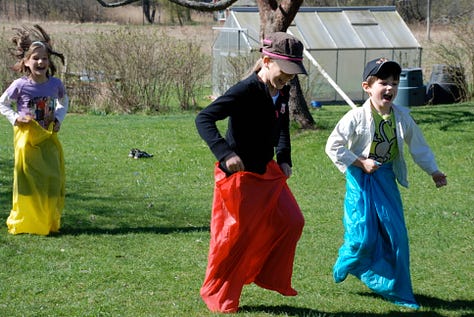

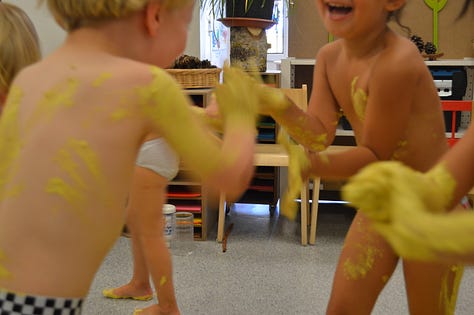
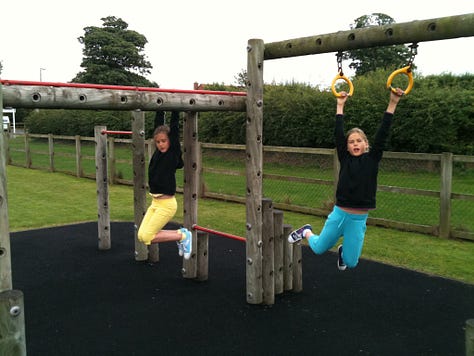


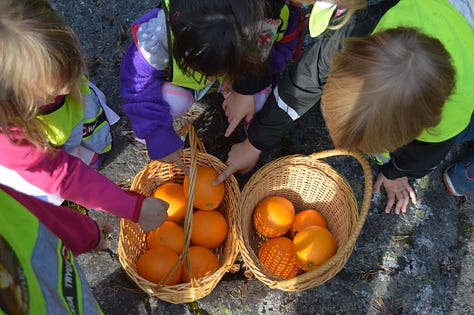
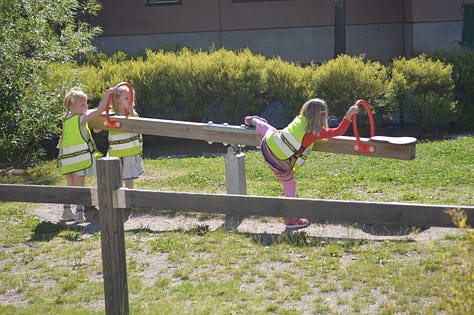
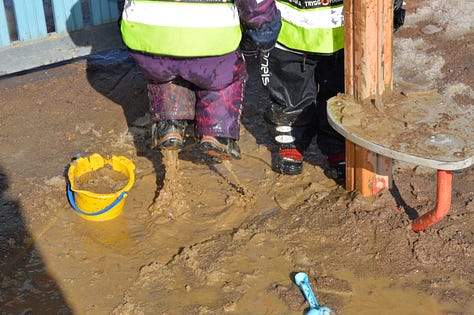




It seems to me that the "competitive" in this sense is about one high achievement above or at the expense of others. Ironically, when looking at the etymology of compete to Latin it is from contempere:
Late Latin competere to seek together, from Latin, to come together, agree, be suitable, from com- + petere to go to, seek
and "petere" is also root to feather
https://www.merriam-webster.com/dictionary/compete
To truly be competitive, in the best sense, is to seek or put effort together towards a goal. What goes array is to do so with deceit, greed and the sad need to dominate in such a way that others are infringed upon or otherwise damaged (be it socially, economically, etc.). What we need to seek to foster is "kind competition" and fly to shared success.